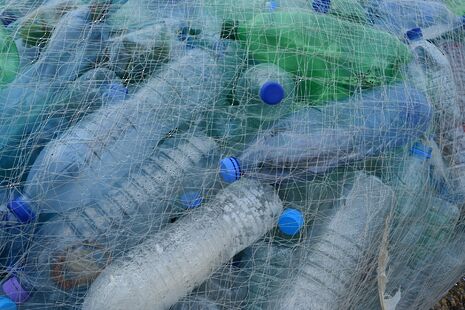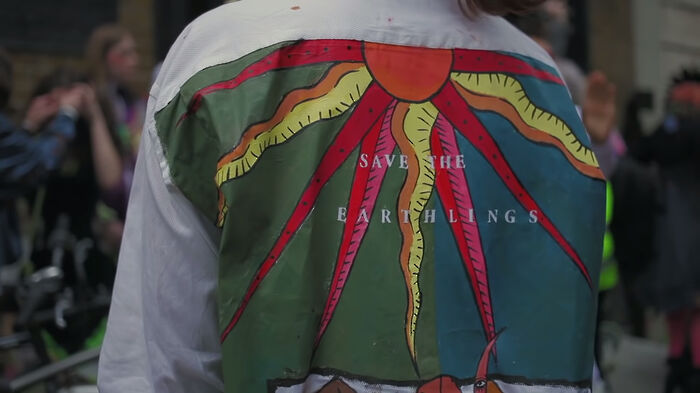Is worrying about waste a waste of time?
Going zero-waste feels impossible, says Jess Molyneux, but there are ways to reduce your waste

No one really thinks of doing the environment a favour by getting a reusable water bottle: it just makes more practical and economical sense that repeatedly buying disposable plastic bottles. But this is one of the only examples I can think of when it comes to reducing waste which has a positive impact other than the environmental benefit. From the plastic-wrapped cucumber (when you’re just trying to get your five-a-day) or the plastic tissue packet (because how else are you supposed to manage freshers’ flu), it’s difficult to avoid packaging in so many of the most innocuous, everyday purchases we make. Thinking of the lifestyle choices I’ve discussed earlier, vegetarianism was a ball, and I can see veganism being doable; sustainable fashion feels good; and we’re getting there on sustainable periods. But I hit a wall when it comes to zero-waste.
Waste management pervades life in a way which other choices just don’t. You can try and buy loose vegetables, recycle things in the right bins if they’re in your college accommodation, and get a keep cup, but it feels impossible to escape waste altogether: when I paid attention this week to every time I threw something in the bin, or bought something which would eventually end up there, I became acutely aware of just how much potential waste surrounds us. Shampoo bottles, plasters, wet wipes, food wrappers, post-it notes – in spite of my best efforts, my regular bin just manages to fill up at five times the speed of my mixed recycling one with an unaccountable amount of little bits and bobs of, literally, rubbish.
“To a large extent it can feel depressingly out of our control”
Part of it is the ease and allure of disposability which busy Cambridge lives and a capitalist economy join forces to create. You need to do so many things on the go, whether it’s eating lunch with plastic cutlery or grabbing a take-out coffee between lectures. How can you always be prepared without a plastic packet of wet wipes ready at hand? And a lot of the supposed solutions which we find don’t get around the root problem of disposable culture, because they provide compostable or recyclable alternatives which are nevertheless still single use items. Vegware and similar compostable plastic is great technology, but often its guilt-free status encourages us to go disposable when we might otherwise have sought reusable alternatives. It gets even more complicated, too, when you factor in the energy consumption and emissions of certain supposedly more environmentally-friendly materials, as well as the problems with disposing some of them. Aluminium cans, for example, take a lot of energy to produce, and so make a minimal difference as a sustainable alternative to plastic bottles. Can individuals be expected to do these weigh-ups when companies are still working to figure it out?
There’s also the time and money investment which zero-waste necessarily demands. No zero-waste food store is as convenient as the Sidney Street Sainsbury’s, and unpackaged and usually organic produce, because not yet mainstream, is tough on a student budget. Cooking from scratch, involving less packaging, involves more time planning and doing. Zero-waste options for toiletries, such as Lush shampoo and conditioner bars, are expensive and can involve a lot more faff to use. (There are definitely cheaper alternatives, though, and, in my experience, shampoo bars are divine for your hair.)
To a large extent it can feel depressingly out of our control. Waste is something which we tend to give only a throwaway thought to. Products have been developed driven by consumer demand to make life easy for us, so that we expect things to be readily available and then easily disposed of. So much of the pressure needs to be on brands to develop sustainable alternatives, but unless there’s some responsibility on individuals to opt out of single-use, those changes will be less in the direction of lowering disposability than putting a greener face on it. Institutions, from supermarkets to Cambridge colleges, can make big changes too. If the impetus isn’t coming from the majority, it’s about making things ridiculously easy for people: most people, with the right labels on their bins, will recycle things whatever their apathy level towards the climate crisis. If it’s just as easy for people, provided with encouraging signs and compostable bags in Sainsbury’s, they will buy loose rather than plastic-wrapped vegetables.
I’m nowhere near zero-waste, but one of the tactics I’ve found helpful in starting slowly is simply consuming less generally. For example, I recently decided not to buy any new makeup until I’ve used up all the bit and bobs I’ve collected. The difference is minimal, since my highlighter waste wasn’t exactly filling up landfill before, but I think it’s a good starting mindset. Asking yourself if you can buy less in the first place, as well as benefiting the bank balance, makes the environmental dilemma of how to get rid of things a smaller problem later. And there are ways we can help one another out: I get high-fives from my whole house after taking my turn on the rota to empty our compost bin, so I don’t mind the little effort. We all need pats on the back – unlike the inadvertent perks which a lot of people find with dietary or fashion changes, zero-waste is rarely going to be more convenient. But that doesn’t mean that we can’t all pitch in to make it more manageable by being more conscious of our buying and chucking choices.
 News / Clare Hall spent over £500k opposing busway 24 December 2025
News / Clare Hall spent over £500k opposing busway 24 December 2025 Comment / The ‘class’ of Cambridge24 December 2025
Comment / The ‘class’ of Cambridge24 December 2025 News / Caius mourns its tree-mendous loss23 December 2025
News / Caius mourns its tree-mendous loss23 December 2025 Comment / Yes, I’m brown – but I have more important things to say22 December 2025
Comment / Yes, I’m brown – but I have more important things to say22 December 2025 News / Girton JCR publishes open letter expressing solidarity with Palestine25 December 2025
News / Girton JCR publishes open letter expressing solidarity with Palestine25 December 2025










